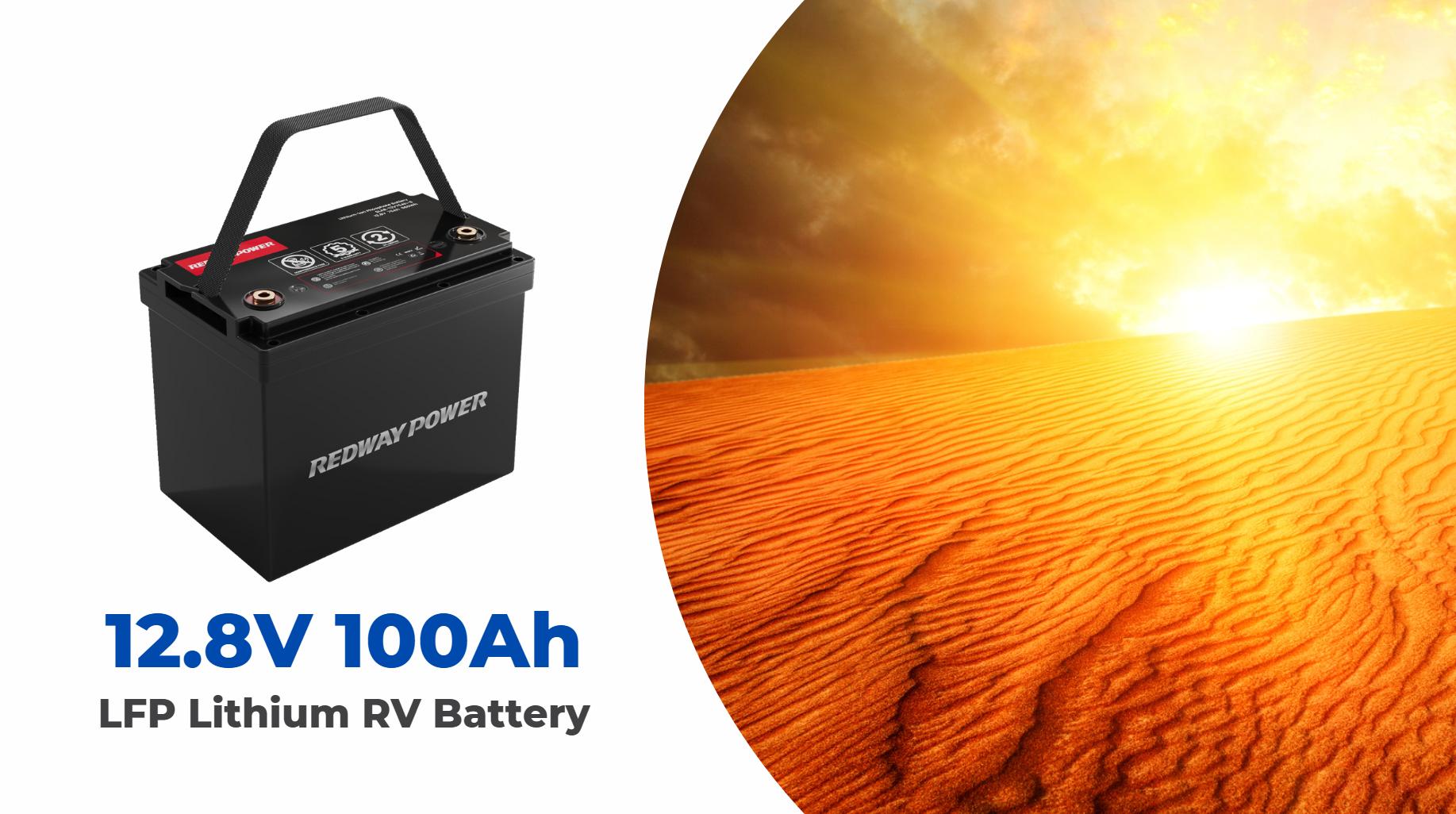When it comes to lithium iron phosphate (LiFePO4) battery packs, understanding the temperature range within which they operate optimally is crucial for ensuring their performance, longevity, and overall reliability. At Redway Battery, a renowned lithium battery OEM factory with extensive expertise, we delve into the specifics of these temperature parameters to help users maximize their battery systems’ efficacy.
LiFePO4 batteries perform optimally between 0°C and 60°C (32°F to 140°F). Operating outside this range can reduce performance or pose safety risks. For long-term storage, moderate temperatures help maintain battery health and longevity.
The Ideal Temperature Range
LiFePO4 battery packs are engineered to function optimally within a temperature range of -20°C to 40°C. Operating within this range ensures that the battery performs at its peak efficiency and delivers reliable power output. This temperature band is not arbitrary but based on extensive research and practical application that guarantees the best balance between performance and safety.
Performance at High Temperatures
At temperatures approaching the upper limit of 40°C, LiFePO4 batteries are capable of delivering high current outputs and maintaining efficient discharge rates. However, it is important to monitor the temperature closely as exceeding this threshold can lead to diminished performance and potential damage to the battery pack. Prolonged exposure to high temperatures can accelerate degradation of battery components, reducing the overall service life of the battery.
Performance at Low Temperatures
Conversely, temperatures nearing the lower limit of -20°C pose different challenges. At these temperatures, the chemical reactions within the battery cells slow down, which can affect the battery’s ability to self-recharge and deliver optimal power output. While LiFePO4 batteries are resilient and can operate at these low temperatures, their performance during discharge might be compromised. Therefore, users are advised to use supplementary heating solutions or store the batteries in conditions that minimize exposure to extreme cold.
Challenges in Extreme Temperature Conditions
Self-Recharging Difficulties
One notable challenge faced by LiFePO4 batteries in cold environments is the difficulty in self-recharging. At temperatures below 0°C, the battery’s ability to accept a charge can be significantly impaired. This issue arises due to the increased internal resistance and decreased electrolyte conductivity at lower temperatures. To mitigate this, users can deploy battery heaters or thermal management systems that ensure the battery remains within the optimal temperature range during charging.
Decreased Efficiency and Lifespan
Both high and low temperatures can impact the efficiency and lifespan of LiFePO4 batteries. High temperatures can lead to accelerated chemical degradation and potential overheating, while low temperatures can cause reduced performance and charging inefficiencies. Maintaining a stable operating environment within the recommended range is essential for preserving the battery’s integrity and overall performance.
Best Practices for Temperature Management
Utilizing Battery Heaters
In environments where temperatures fall below the optimal range, battery heaters are a practical solution. These devices help maintain the battery’s temperature, ensuring it remains within the recommended operational range. Battery heaters are especially useful for electric vehicles and renewable energy storage systems that are frequently exposed to varying environmental conditions.
Implementing Thermal Management Systems
For high-temperature environments, thermal management systems can help regulate the battery’s temperature. These systems often include cooling fans, heat sinks, and ventilation mechanisms that dissipate excess heat and maintain a stable temperature. Proper thermal management is crucial for preventing overheating and preserving the battery’s performance and lifespan.
Strategic Storage Solutions
When not in use, storing LiFePO4 batteries in temperature-controlled environments can significantly enhance their longevity. Whether in high or low-temperature settings, ensuring that batteries are stored within the ideal range prevents premature degradation and ensures they are ready for optimal performance when needed.
The Role of Redway Battery
At Redway Battery, our extensive experience in manufacturing and designing lithium battery packs has provided us with deep insights into the operational characteristics of LiFePO4 batteries. Our products are engineered to withstand a broad range of environmental conditions, and we continuously innovate to address temperature-related challenges.
High-Quality Manufacturing
Our LiFePO4 batteries are produced using advanced technology and high-quality materials that enhance their performance and durability. We employ rigorous testing protocols to ensure that each battery pack operates effectively within its specified temperature range. This commitment to quality ensures that our batteries deliver reliable power and maintain peak performance over their entire lifespan.
Customized Solutions
Understanding that different applications have unique requirements, we offer customized solutions that cater to specific temperature conditions and operational needs. Whether you require battery packs for renewable energy systems, electric vehicles, or industrial applications, our team at Redway Battery is equipped to provide tailored solutions that ensure optimal performance and longevity.
Do you really need lithium battery self-heating?
Conclusion
In conclusion, the optimal temperature range for LiFePO4 battery packs is -20°C to 40°C, ensuring that these batteries perform effectively and reliably. By adhering to this temperature range and employing appropriate temperature management solutions, users can maximize the performance and lifespan of their LiFePO4 batteries. Redway Battery’s expertise in manufacturing and designing high-quality lithium batteries reinforces our commitment to delivering superior products that meet the rigorous demands of various applications. For any further information or to explore our range of LiFePO4 battery solutions, please contact us.






